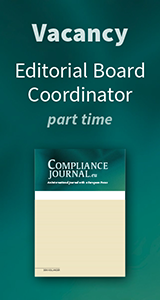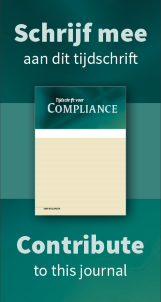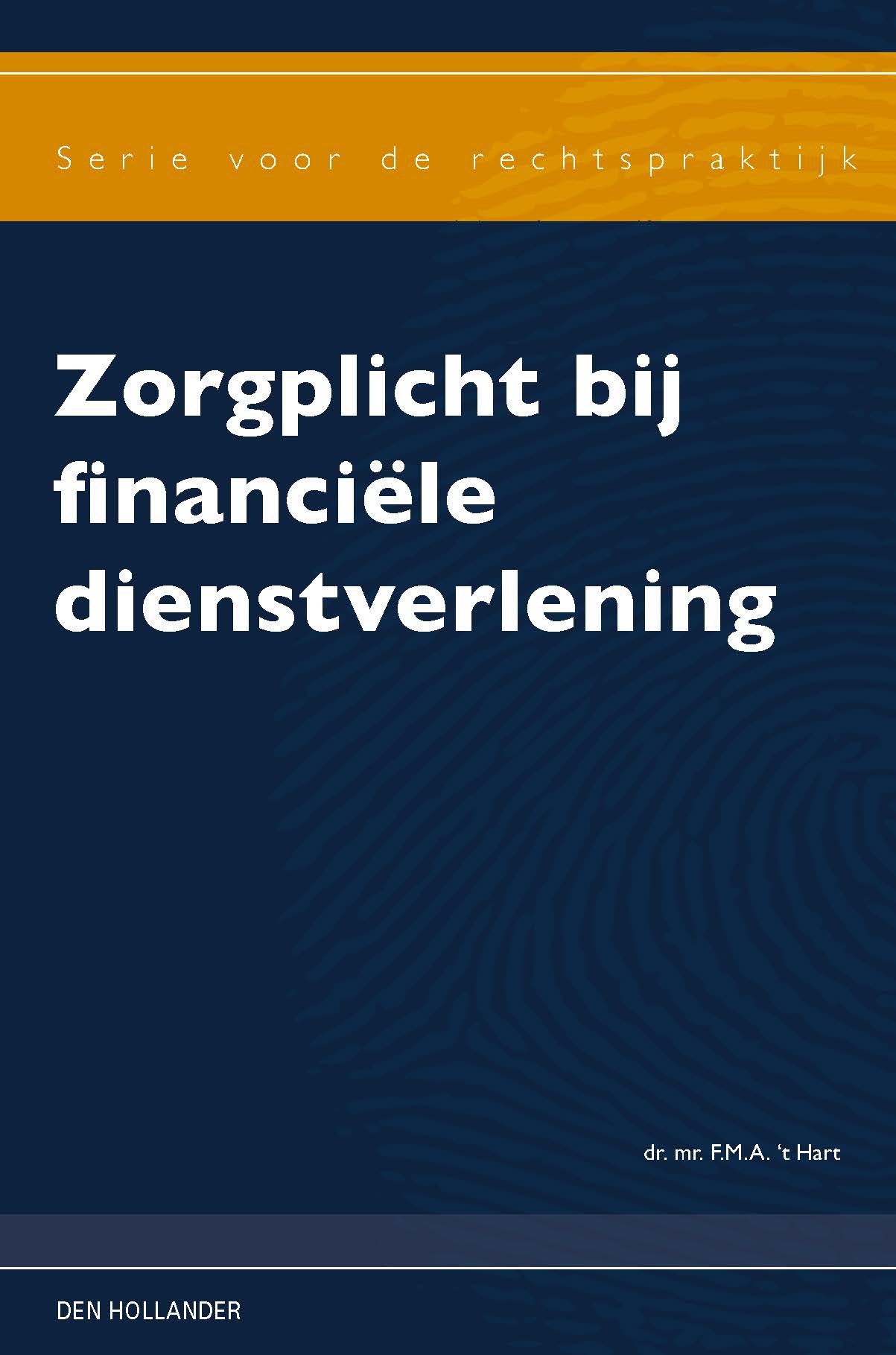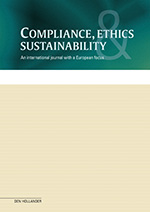Editorial
Het artikel is in de opmaak van het tijdschrift rechts als pdf beschikbaar.Following on from the first edition of 2023 which focused on 'European enforcement and supervision', the second edition of the 'Compliance, Ethics and Sustainability' Journal (formerly known as: Tijdschrift voor Compliance) will zoom in on growing threats to the economy and integrity of our financial systems which have become increasingly international by nature: 'AML, Corruption and Fraud'. Recent scandals such as 'Qatargate' at the European Parliament, the death of journalist Peter R. de Vries in the Netherlands and the recent action of law enforcement against a major cross-border VAT fraud scheme highlight the relevance of the topic. Being at the front of mind for lawmakers, private enterprises, and society at large, in our view the topic requires the special attention of the compliance function. The articles and the interview with the European Financial and Economic Crime Centre at Europol examine this theme from different angles.
Interview with Burkhard Mühl: 'Organized crime feels strong enough to take on the state'
Jeroen Boogaard
The European Financial and Economic Crime Centre (EFECC) at Europol enhances Europol's operational and strategic support by preventing and combating financial and economic crime in the European Union. Although the EFECC is the youngest center at Europol, they have been able to provide a wide range of support to EU member states and law enforcement. In this article Jeroen Boogaard interviews the Head of the European Financial and Economic Crime Centre at Europol, Burkhard Mühl, about the operations and ambitions of the EFECC and recent trends in the field of international financial and economic crime.
'The UK's Economic Crime and Corporate Transparency Bill: Its implications for the UK and the EU'
Aziz Rahman and Francesca Cassidy-Taylor
Following Russia's invasion of Ukraine the United Kingdom moved swiftly to implement legislation to address the influx of Russian and other foreign money believed to be abusing the UK's economy. In their contribution, Aziz Rahman and Francesca Cassidy-Taylor outline the legislation and its far-reaching consequences for international entities. Law enforcement agencies are preparing to bring new powers to bear, and Rahman and Cassidy-Taylor advise that corporates would be best placed to make preparations themselves to ensure the integrity and legality of their operations.
'UBO register voor trusts en fondsen voor gemene rekening'
Birgit Snijder-Kuipers
As of 1 April 2023 the ultimate beneficial owners (UBOs) of certain trusts and all funds for joint account (fondsen voor gemene rekening, "FGR") have had to be registered at the Dutch UBO-register for trusts. However, due to the complex nature of trusts and FGR it is often difficult to determine in which cases registration of trusts must take place and who the UBOs of a trust and of an FGR are. In this article (in Dutch), Prof. Birgit Snijder-Kuipers provides an overview of the three applicable Dutch registers for registration of legal entities and further explores when the registration of these legal constructs needs to take place and who should be identified as the UBO. Moreover, Prof. Snijder-Kuipers also highlights potential bottlenecks in the current legislation and proposes possible solutions.
'De strijd tegen witwassen, een gecombineerd perspectief. De mier, de havik en de vleermuis'
David Langenkamp
In this article (in Dutch), David Langenkamp describes three strategies that organizations could include in their internal anti-money laundering programs. The first strategy, that he has labeled the ant, is based on efficiency and identifying patterns via detection rules and alerts. The second strategy, the hawk, centers around obtaining insight and oversight. The last strategy, the bat, focuses on the most systemic and complex forms of money laundering. Although each strategy can to some extent be successful on its own, a combined approach will add most value to an organization's anti-money laundering program.
'Leveraging Data Analytics to better protect against money laundering, corruption and fraud'
Sharon Hall and Phillip Macmillan
As organisations grow their compliance regimes become increasingly complicated. In addition, vast amounts of data can conceal instances of wrongdoing. Sharon Hall and Phillip Macmillan demonstrate in their article how Data Analytics can be used to underpin the infrastructure of a compliance program to obtain huge efficiencies in achieving a culture of compliance. Using Data Analytics tools to make programs more intuitive and to effectively mine data, identifying the 'red flags' we know are there somewhere. Not only do Hall and Macmillan describe the benefits that can be obtained from this technology, but they also highlight the requirements of implementing it as mandated by international regulators and law enforcement.
'Enemy at the gate - The payment value chain; which payment service provider must apply CDD and TM, and on who?'
Robbert Middelburg
Wwft institutions must perform Customer Due Diligence (CDD) on their customers and their customers' UBOs, perform transaction monitoring (TM) over the business relationship with their customers and report unusual transactions to the authorities. When a card-acquirer provides payment services to a payment facilitator (PFac), it is debatable whether the PFac's merchants (Sub-Merchants) qualify as the card-acquirer's customers and business relations within the meaning of the Wwft, whether the card-acquirer has CDD and TM obligations on the Sub-Merchants, and if so, what the scope of those obligations is. This article seeks to examine this matter.
'Third-country crypto-asset service providers and reverse solicitation'
Abas Hoesseinzada
The concept of reverse solicitation has been a subject of debate in the context of 'traditional' financial services for many years. As also follows from the Dutch Central Bank's decision to impose a fine on Coinbase Europe Limited, it is now also a subject of debate in the context of the provision of crypto-asset services. In this article, Abas Hoesseinzada provides an analysis of the interaction between the concepts of 'offering services in the EU' (in light of the EU financial regulatory framework's territorial scope) and reverse solicitation, with a focus on the question of when the current registration requirement under AMLD5 and the licensing requirement under MiCAR are triggered by third-country crypto-asset service providers. In particular, Abas Hoesseinzada provides further considerations as to what extent third-country crypto-asset service providers will be able to rely on reverse solicitation after MiCAR's licensing requirement applies.
With this edition, the editorial team provides you with many new perspectives on these important and international topics. We wish you a lot of reading pleasure.
Edward Nkune, Marlon Straathof, Marijke Terpstra-Ruijters and Arend Koper




